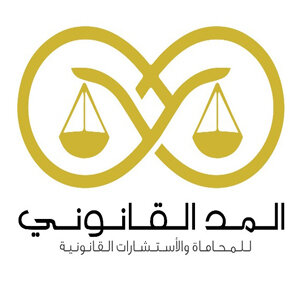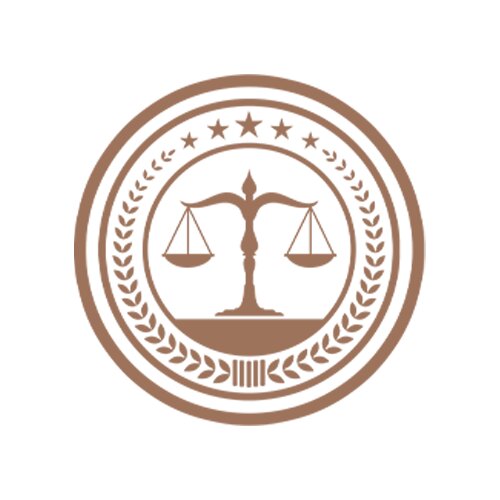Best Divorce & Separation Lawyers in Kuwait
Share your needs with us, get contacted by law firms.
Free. Takes 2 min.
Free Guide to Hiring a Family Lawyer
Or refine your search by selecting a city:
List of the best lawyers in Kuwait
About Divorce & Separation Law in Kuwait
Divorce and separation laws in Kuwait are predominantly influenced by Islamic law, as the country's legal system is largely based on Sharia principles. While Kuwaiti family law governs personal matters, such as marriage, divorce, and custody, the applications can vary significantly between Muslims and non-Muslims. It's important to understand that divorce procedures in Kuwait might be different for expatriates compared to Kuwaiti nationals. The process generally involves several steps, including attempts at reconciliation, judicial hearings, and the finalization of the divorce decree.
Why You May Need a Lawyer
Engaging a lawyer in cases of divorce and separation can provide essential support and guidance. Common situations where legal help may be required include:
- Understanding and navigating the complexities of local and Sharia laws applicable to your case.
- Negotiating fair agreements on matters such as alimony, child support, and asset division.
- Ensuring your rights and interests are protected in custody and visitation proceedings.
- Handling cross-border legal complications for expatriates.
- Facilitating the enforcement of court orders.
Local Laws Overview
Kuwait's divorce and separation laws encompass several key aspects:
- Types of Divorce: Islamic law recognizes several forms of divorce, including Talaq (repudiation by the husband), Khula (mutual consent divorce initiated by the wife), and judicial divorce.
- Reconciliation: The court typically requires attempts at reconciliation before processing a divorce. Sessions with a family guidance committee are often mandated.
- Custody: Custody decisions are made based on the child's welfare, with a general preference for mothers during the early years of a child's life, though this can vary based on circumstances.
- Asset Division: Kuwaiti law generally does not follow a community property model, and the division of assets depends on documentation and ownership evidence.
- Waiting Period: Certain types of divorce involve a waiting period ('Iddah') that affects the timing of the finalization of the process.
Frequently Asked Questions
What are the initial steps to file for divorce in Kuwait?
You should first attempt reconciliation through a family guidance committee, followed by filing a petition for divorce at the Personal Status Court with the necessary documentation.
Can a non-Kuwaiti file for divorce in Kuwait?
Yes, expatriates can file for divorce in Kuwait, but the process may vary depending on nationality and whether both parties are residents of Kuwait.
How is custody determined under Kuwaiti law?
Custody is generally awarded in the best interests of the child, often favoring the mother for children of young age, though rights can vary based on case details and child’s age and needs.
Is it necessary to provide evidence of fault to obtain a divorce?
While not all forms of divorce require evidence of fault, specific grounds may need to be demonstrated for judicial divorce proceedings.
What financial support can a spouse expect after divorce?
Alimony and child support determinations are made based on multiple factors including financial status, the needs of children, and individual agreements.
How can assets be divided during a divorce?
Asset division is contingent on ownership proof, financial contributions, and can be negotiated or settled by the courts if mutual agreement cannot be reached.
What role do family guidance committees play in the divorce process?
These committees aim to mediate between parties, encourage reconciliation, and provide counseling. Their involvement is often a prerequisite before court hearings.
How long does the divorce process typically take?
The duration varies, depending on complexity, cooperation between parties, and court schedules, ranging from a few months to over a year.
Can parties appeal divorce court decisions?
Yes, Kuwait allows for appeal processes if there is contention with court decisions regarding divorce, custody, or financial support.
Are there specific laws for expatriates under Kuwaiti divorce law?
Expatriates are generally subject to the same process but may face additional complexities related to international jurisdictions and differences in personal status laws.
Additional Resources
If you are seeking further assistance, consider consulting the following resources:
- Ministry of Justice, Kuwait: Responsible for legal affairs, including family courts.
- Kuwaiti Lawyers Association: Provides a list of legal professionals specializing in family law.
- Family Counseling Services: Various non-governmental and community organizations offer counseling aimed at reconciliation and support.
Next Steps
If you require legal assistance in a divorce or separation case in Kuwait, follow these steps:
- Research and identify experienced family law attorneys in Kuwait.
- Schedule consultations to discuss your case and understand your legal options.
- Attend any required family guidance committee sessions or counseling.
- Prepare and gather necessary documentation, including marriage certificates, financial records, etc.
- Proceed with filing a legal petition in the Personal Status Court if reconciliation fails.
By undertaking these steps, you can effectively navigate the legal landscape of divorce and separation in Kuwait with professional guidance.
Lawzana helps you find the best lawyers and law firms in Kuwait through a curated and pre-screened list of qualified legal professionals. Our platform offers rankings and detailed profiles of attorneys and law firms, allowing you to compare based on practice areas, including Divorce & Separation, experience, and client feedback.
Each profile includes a description of the firm's areas of practice, client reviews, team members and partners, year of establishment, spoken languages, office locations, contact information, social media presence, and any published articles or resources. Most firms on our platform speak English and are experienced in both local and international legal matters.
Get a quote from top-rated law firms in Kuwait — quickly, securely, and without unnecessary hassle.
Disclaimer:
The information provided on this page is for general informational purposes only and does not constitute legal advice. While we strive to ensure the accuracy and relevance of the content, legal information may change over time, and interpretations of the law can vary. You should always consult with a qualified legal professional for advice specific to your situation.
We disclaim all liability for actions taken or not taken based on the content of this page. If you believe any information is incorrect or outdated, please contact us, and we will review and update it where appropriate.
Browse divorce & separation law firms by city in Kuwait
Refine your search by selecting a city.















